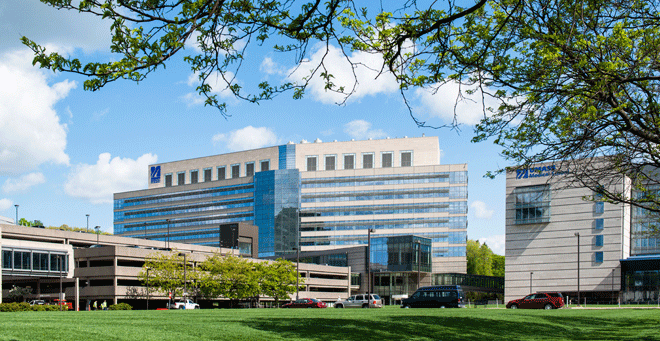 |
|
| UMass Medical School was ranked 12th in primary care education by weekly news magazine U.S. News & World Report in its latest edition of the “Best Graduate Schools” issue. |
UMass Medical School was ranked 12th in primary care education among 130 medical schools and 26 schools of osteopathic medicine surveyed by weekly news magazine U.S. News & World Report in its 2016 edition of the “Best Graduate Schools” issue. UMMS has been listed near the top of the category since 1994 when the magazine began publishing the rankings. Of note, UMMS is the only school in the top 50 that accepts only in-state students to its medical degree program. U.S. News also ranked UMMS 49 among research schools and 50 in the biological sciences.
“UMass Medical School’s high ranking reflects the great commitment and pride we take in our role as educators and mentors to the next generation of health care givers,” said Chancellor Michael F. Collins. “At a time when the knowledge, skills and humanity that primary care physicians bring to our health care system are needed more than ever, the role our students are poised to play in shaping the future of medicine has never been more profound.”
“A national leader in primary care education and in biomedical research, UMass Medical School continues to be lauded for the quality of its contributions to science and the remarkable achievements of its faculty and students,” said University of Massachusetts President Robert L. Caret. “This recognition is a testament to the vision that created our system of public higher education 150 years ago, and that is a vision of service to individuals, to communities, to our nation and the world.”
The School of Medicine, which had accepted just 100 students per year since the 1970s, recently expanded its class to 125 to help increase the pool of physicians, particularly primary care providers, trained to meet the needs of the commonwealth and the nation. Traditionally, more than 50 percent of each year’s graduating class enter primary care residency programs. Additionally, more than half of each class stays in the Massachusetts for residency, which has resulted in more than 300 new residents in the last five years alone. “What distinguishes the School of Medicine most is the tireless dedication of our faculty and students to our core missions of education, research and patient care,” said Terence R. Flotte, MD, the Celia and Isaac Haidak Professor of Medical Education, executive deputy chancellor, provost, and dean of the School of Medicine.
U.S. News & World Report surveyed and ranked 130 medical schools accredited in 2014 by the Liaison Committee on Medical Education and 26 schools of osteopathic medicine accredited by the American Osteopathic Association based on measures of academic quality, which are weighted by reputation among faculty and residents, research activity, student selectivity and faculty resources.